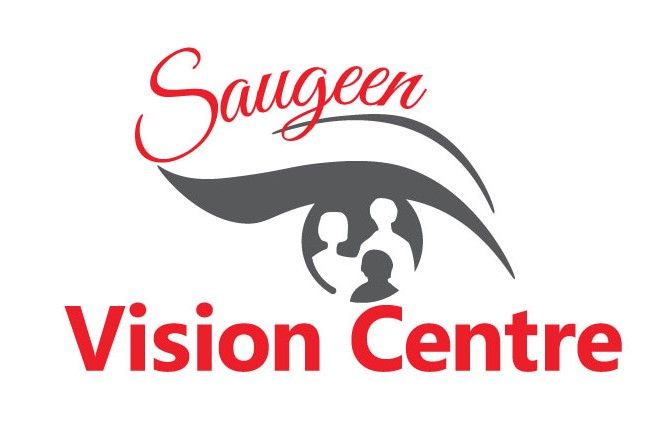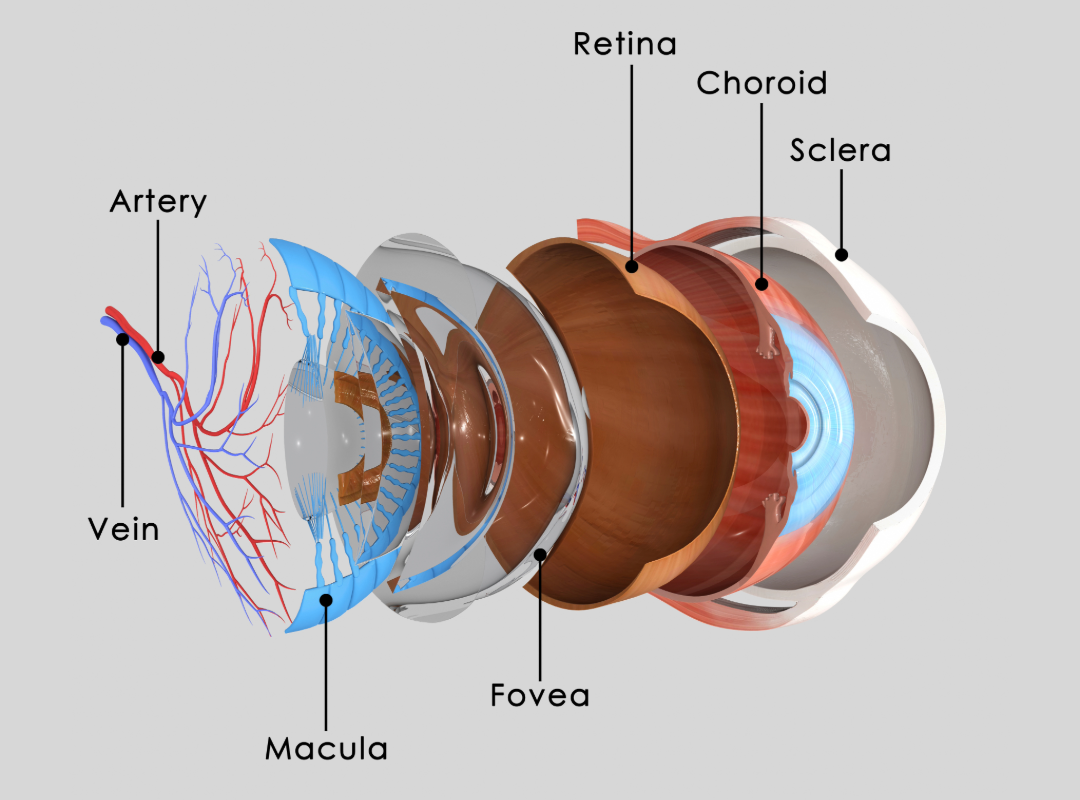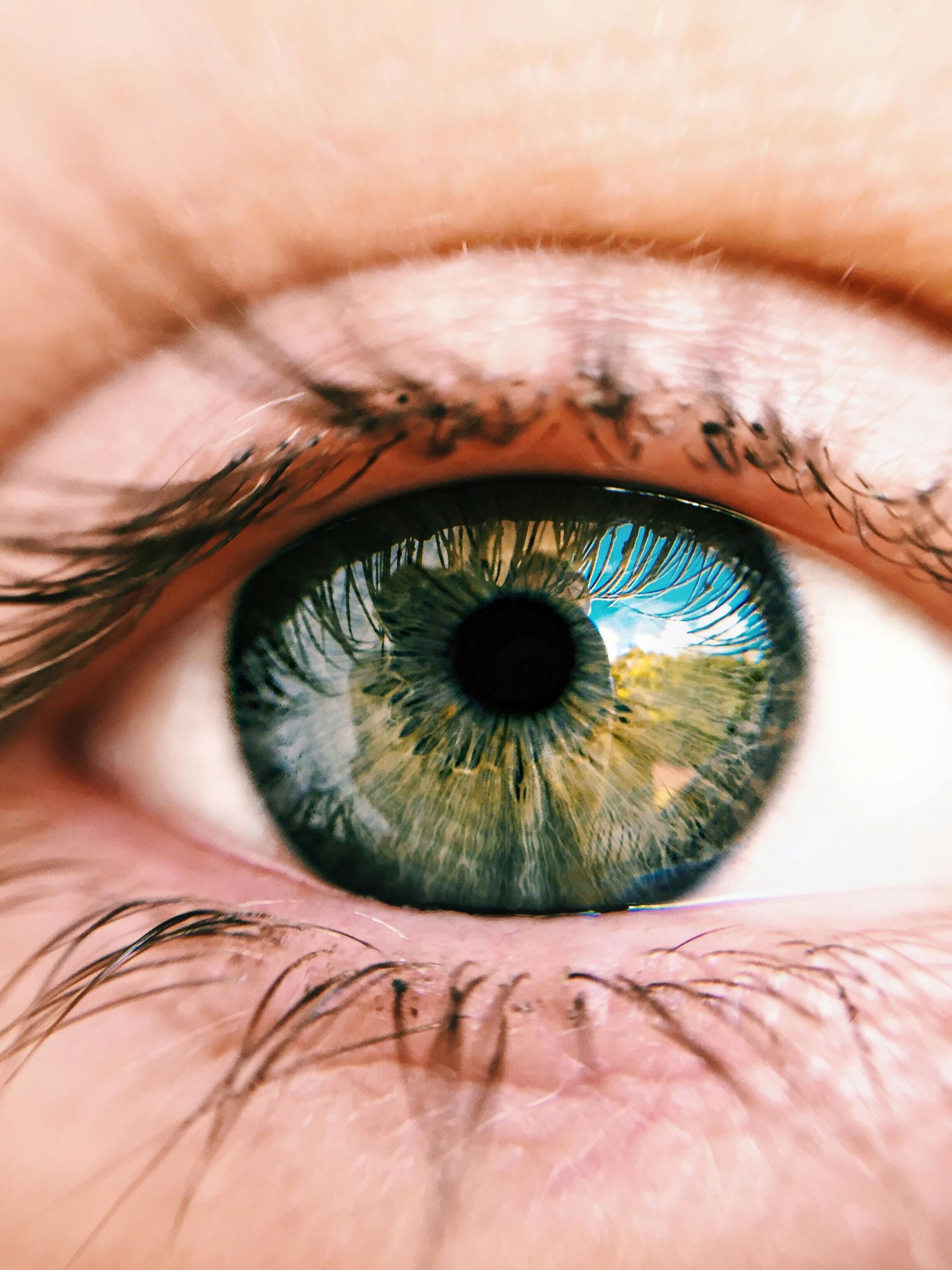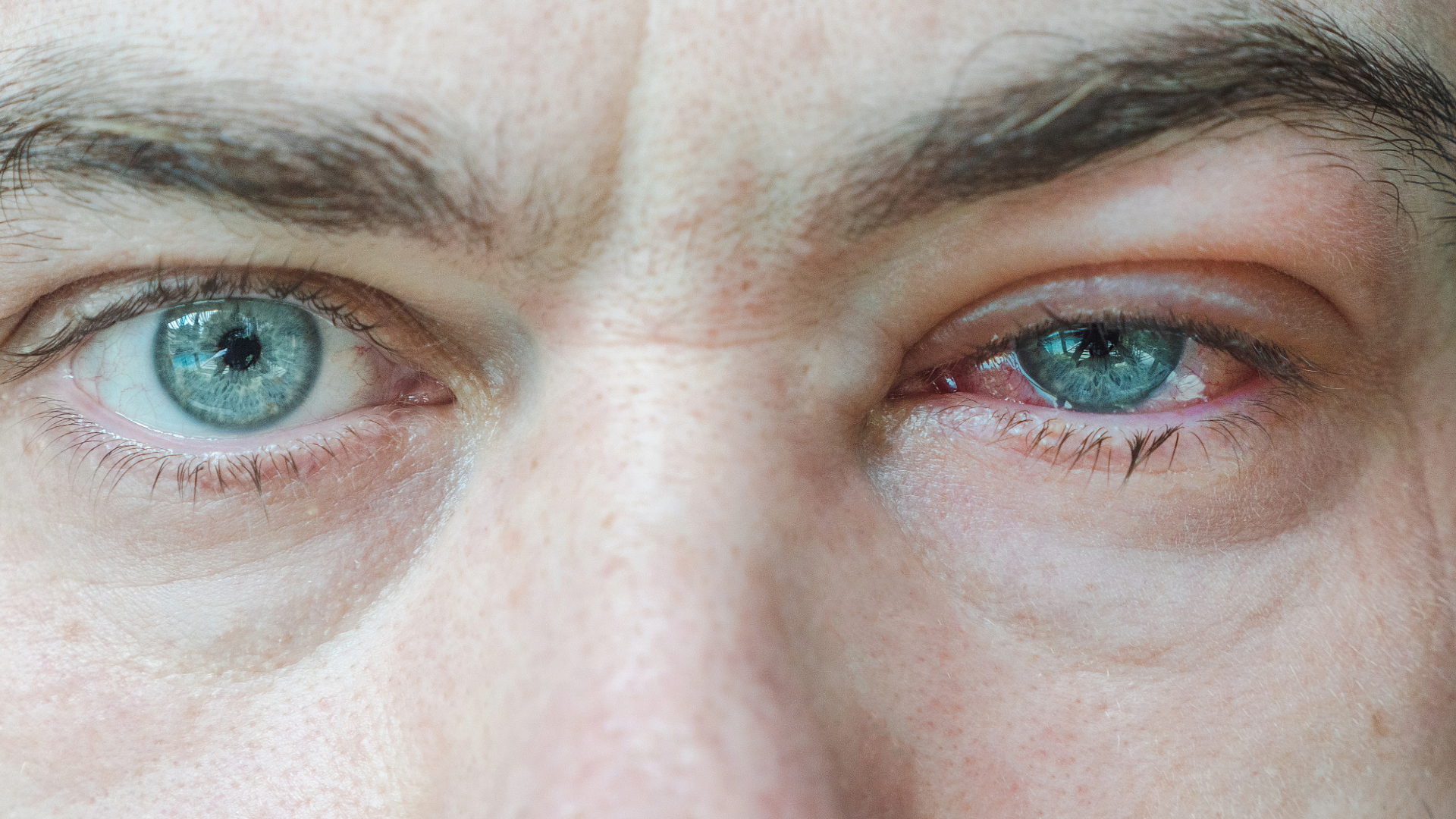Macular Degeneration
Causes, Symptoms, Diagnosis, and Treatment
What is Macular Degeneration?
The macula, a sensitive part of the retina at the back of the eye, has millions of cells which sense light and provide sharp detail of objects within our central vision. Damage to the macula will impact central vision which may become blurred, darkened or distorted. There might be blank spots when looking straight ahead. Age-related Macular Degeneration (AMD) can impair your quality of life in earlier stages, affecting the ability to see faces, read, write or drive. AMD is a leading cause of vision impairment in older adults.
You only have one set of eyes!
If you are concerned about your vision or notice any changes in your sight, schedule an appointment with our optometrists today.
Symptoms of Macular Degeneration
There are two main types of AMD: dry, and wet.
The "dry" form is the most common - it is a milder form where there is a gradual degeneration of the central retinal tissues that make up the macula and symptoms generally develop slowly over time.
The "wet" form is a sudden leakage, or bleeding, from weak blood vessels under the macula and symptoms progress rapidly. Wet AMD accounts for approximately 10% of all cases, but the dry form can develop into the wet form over time.
There are no perceptible symptoms when AMD begins to develop. It can only be detected by an optometrist conducting a comprehensive eye examination. By the time it has developed, changes to your central vision occur, such as:
- Blurred or “wavy” central vision
- Difficulty reading, driving, or recognizing faces
- Dark or blank spots in the center of vision
Common Causes of Macular Degeneration
Several factors can contribute to the development of macular degeneration, including:
- Aging: The risk of developing age-related macular degeneration (AMD) significantly increases after the age of 50. The macula, responsible for central vision, naturally degenerates over time due to wear and tear.
- Genetics: Having a family history of macular degeneration can increase an individual's risk as genetic predispositions may be inherited. Researchers have identified certain genes associated with an increased risk of AMD.
- Smoking: A significant risk factor for AMD, smokers are twice as likely to develop the condition The harmful chemicals in cigarettes can damage the retina and reduce blood flow, contributing to oxidative stress and inflammation, which are detrimental to retinal health.
- High Blood Pressure: Hypertension can lead to damage in the blood vessels of the retina, increasing the risk of AMD. The associated vascular changes can impair circulation, leading to reduced oxygen and nutrient supply to retinal cells.
- Obesity: Excess body weight is linked to a higher risk of developing AMD, likely due to associated factors such as increased inflammation and metabolic syndrome. Individuals who are obese may also have hypertension, further compounding the risk.
- Nutritional Deficiencies: Diets low in antioxidants, vitamins, and minerals may contribute to the development of AMD. Key nutrients like lutein, zeaxanthin, omega-3 fatty acids, and vitamins C and E are crucial for retinal health.
- Screen Time: Prolonged exposure to screens emitting blue light may potentially contribute to retinal damage. While more research is needed, there are concerns about the cumulative effects of blue light exposure from devices over time.
Diagnosing Macular Degeneration
At Saugeen Vision Centre, our optometrists are equipped to diagnose Age-related Macular Degeneration (AMD) through a comprehensive eye examination, with specific testing such as:
- Dilated Eye Exam: Eye drops are administered to dilate your pupils, enabling your optometrist to observe the back of your eye and assess the retina. This provides a clear view of the macula for any signs of damage.
- Amsler Grid Test: Visual testing to reveal early signs of AMD that helps to identify issues with distance, or wavy or missing lines in your vision.
- Optical Coherence Tomography (OCT): Offers detailed imaging of the retina's layers through advanced scanning technology.
Treatment Options for Macular Degeneration
Depending on the specific type of age-related macular degeneration (AMD), the treatment strategies aimed at slowing the progression of the disease can vary significantly. Here are some common treatment options that healthcare professionals may recommend:
- Vitamin Supplements: Certain specific formulations of vitamin supplements have been shown to potentially slow the progression of "dry" AMD, helping to maintain health in the retinal cells.
- Injections: For individuals diagnosed with "wet" AMD, anti-vascular endothelial growth factor (anti-VEGF) injections are frequently used. These injections help reduce the growth of abnormal blood vessels that can lead to vision loss.
- Laser Therapy & Surgery: Advanced treatment options, such as laser therapy or surgical interventions, may be utilized to address the effects of AMD and to slow down the progression of the disease in certain cases.
Risks of Untreated Macular Degeneration
Without treatment, AMD can lead to permanent central vision loss, impacting independence and quality of life, especially for tasks like reading or recognizing faces.
Regular eye exams are crucial in catching signs early and helping you find relief with the appropriate treatment plan. If you’re experiencing symptoms of dry eye, contact your optometrist for a comprehensive assessment and to explore the best options for your eye health.









